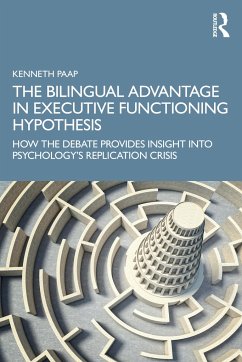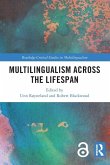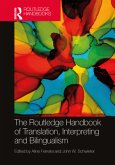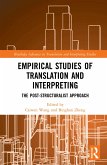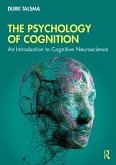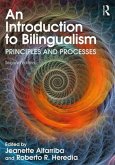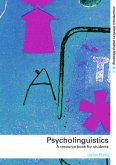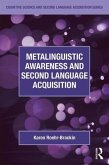The Bilingual Advantage in Executive Functioning Hypothesis is a ground-breaking book that explores one of the liveliest debates in bilingualism and cognitive psychology. It examines the hypothesis that using two languages leads to the enhancement of domain-general executive functioning (EF) and argues that either the bilingual advantage does not exist or is restricted to very specific circumstances. The conclusion extends to situations where EF is referred to as self-control, self-regulation, self-discipline, attention-control, impulse control, inhibitory control, cognitive control, and willpower.
The book explores the evolving core assumptions underlying the bilingual advantage hypothesis, framing the debate within the broader context of a replication crisis. It provides a critical review of seminal studies and meta-analyses and argues that the empirical evidence does not support a bilingual advantage on EF that is distinguishable from zero. Part I lays the foundation for the debate, providing the background needed to understand the state-of-the-art research on EF and bilingual language control. The next part then provides a detailed review of the empirical evidence triggering each iteration of the hypothesis. This includes new data that compares tests of the bilingual advantage hypothesis based on self-reports of cognitive control to performance-based measures of EF. A third theoretical part considers several explanations for why managing two languages may not enhance aspects of domain-general cognition.
This is essential reading for students and scholars in bilingualism, psychology, linguistics, languages, speech and hearing science, and related fields. It also serves as an excellent primary source for graduate courses on the bilingual advantage debate, and is useful for advanced undergraduate courses in psycholinguistics, cognition or bilingualism.
The book explores the evolving core assumptions underlying the bilingual advantage hypothesis, framing the debate within the broader context of a replication crisis. It provides a critical review of seminal studies and meta-analyses and argues that the empirical evidence does not support a bilingual advantage on EF that is distinguishable from zero. Part I lays the foundation for the debate, providing the background needed to understand the state-of-the-art research on EF and bilingual language control. The next part then provides a detailed review of the empirical evidence triggering each iteration of the hypothesis. This includes new data that compares tests of the bilingual advantage hypothesis based on self-reports of cognitive control to performance-based measures of EF. A third theoretical part considers several explanations for why managing two languages may not enhance aspects of domain-general cognition.
This is essential reading for students and scholars in bilingualism, psychology, linguistics, languages, speech and hearing science, and related fields. It also serves as an excellent primary source for graduate courses on the bilingual advantage debate, and is useful for advanced undergraduate courses in psycholinguistics, cognition or bilingualism.
Entering the quicksand of the debate on the possible cognitive advantages of multilingualism can sap the energies of almost any scientist and swallow them up, causing them to abandon this field of study. Fortunately for the scientific community, and for society in general, this is not the case of Ken, who with uncommon strength, rigor, constancy, coherence, and tenacity has walked through the mud to go one step further in a debate that has become the most paradigmatic example of the reproducibility crisis suffered by cognitive science. This book is a faithful reflection of how a position adopted in the light of crucial research results can be defended with solid arguments and with a theoretical and empirical foundation that provides an almost global vision of the phenomenon. Science is cumulative for the most part, and sometimes it is revolutionary. In order to achieve revolutionary findings, it is necessary to accumulate and discuss the evidence to guide the path of the scientific work of today and tomorrow. This book sheds light on a path full of darkness. - Jon Andoni Duñabeitia, University of Nebrija, Madrid
This book is an in-depth account of the heated controversy over claims of bilingual advantages in executive functions. The author, a key figure in this discussion, meticulously dissects the arguments and evidence on either side of the debate and brings it together in what is a compelling plea for theory-testing, methodologically rigorous research. A must-read for bilingual-advantage researchers and students, and a strongly recommended case study for anyone interested in the life cycle of academic discourse in what has been a hot topic of psychology for many decades. - Dr Claudia von Bastian, Department of Psychology, University of Sheffield, United Kingdom
This timely and comprehensive assessment of the bilingual advantage hypothesis is a must-read for all social science researchers and students. Beyond the specifics of bilingualism and executive functioning, the book delivers a sobering case study of the replication crisis that besets social science in the 21st century. - J Bruce Morton, University of Western Ontario, Canada
This book is an in-depth account of the heated controversy over claims of bilingual advantages in executive functions. The author, a key figure in this discussion, meticulously dissects the arguments and evidence on either side of the debate and brings it together in what is a compelling plea for theory-testing, methodologically rigorous research. A must-read for bilingual-advantage researchers and students, and a strongly recommended case study for anyone interested in the life cycle of academic discourse in what has been a hot topic of psychology for many decades. - Dr Claudia von Bastian, Department of Psychology, University of Sheffield, United Kingdom
This timely and comprehensive assessment of the bilingual advantage hypothesis is a must-read for all social science researchers and students. Beyond the specifics of bilingualism and executive functioning, the book delivers a sobering case study of the replication crisis that besets social science in the 21st century. - J Bruce Morton, University of Western Ontario, Canada

